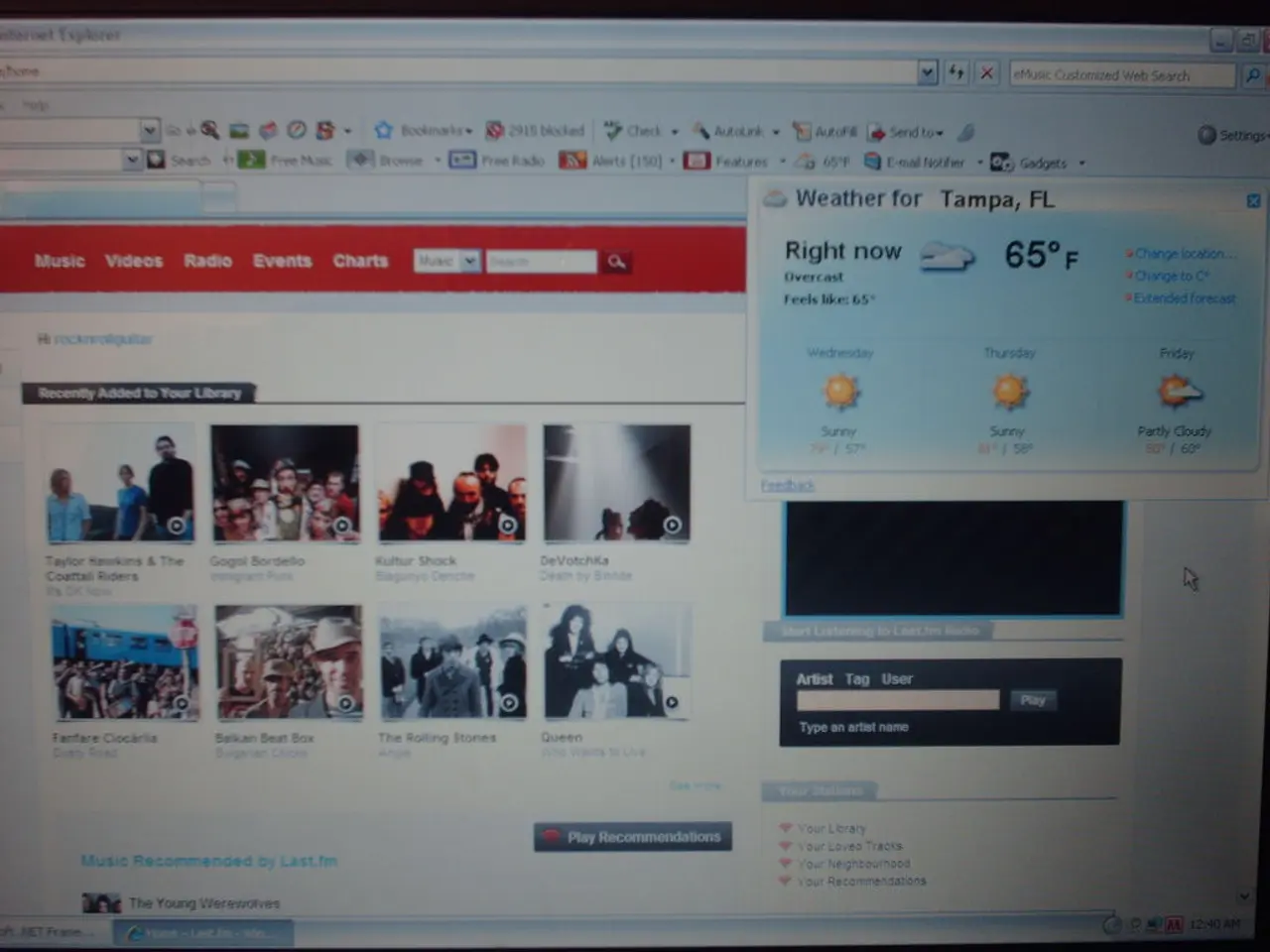The Evolution and Demise of Flash Games: six pivotal factors shaping their growth and decline
The Rise and Fall of Flash Games: A Look Back at the Golden Era
In the early 2000s, Flash games took the web by storm, revolutionizing the way people played games online. HTML5, a more secure, efficient, and universally compatible platform for interactive content, now stands as the future of the web. But let's take a step back and explore the golden era of Flash games.
The journey began with the release of the iconic game Pico's School in 1999. This game, though not the first Flash game, was widely recognized as a catalyst that inspired many developers to create their own Flash games [1]. The turning point came in 2000 when a significant Flash Player update introduced its own programming language, enabling sites like Newgrounds (launched in April 2000) to host user-created Flash games [1].
Flash games gained immense popularity in the late 1990s and peaked around 2007-2008, with titles like Trials and Alien Hominid dominating browser-based gaming. During this period, popular Flash game portals such as Newgrounds, Miniclip, Kongregate, and Armor Games emerged, driving the widespread popularity of Flash games in the 2000s [1].
However, the rise of mobile gaming and the gradual replacement of Flash by HTML5 led to the decline of Flash games in the 2010s. Adobe ended Flash support on January 12, 2021, due to security vulnerabilities and HTML5's superior performance [2].
Despite Flash's demise, the gaming community has ensured that classic Flash titles continue to be accessible. Newgrounds hosts thousands of classic Flash titles that can be downloaded directly to your computer. The gaming community has also created numerous unofficial collections, sharing zip files packed with hundreds of classic Flash titles across forums and file-sharing sites [3].
The Internet Archive and other preservation projects also work to save Flash games for future generations. Notable among these initiatives is BlueMaxima's Flashpoint, which preserved over 150,000 Flash games and 25,000 animations in the world's largest digital gaming archive [4]. The Ruffle emulator, an open-source emulation plug-in, also revives SWF files on modern browsers, allowing for the playback of classic Flash games without requiring the original Flash Player plugin [5].
HTML5 games don't require extensions to play, improving accessibility across all devices and browsers. They replaced Flash by offering better security, mobile compatibility, and no plugin requirements for users. HTML5 supports various frameworks, offering improved performance and real-time debugging options for developers. The open-source nature of HTML5 encourages community-driven innovation and reduces development costs for indie developers [6].
Notable HTML5 games, such as CrossCode and HexGL, demonstrate the technology's capabilities with smooth gameplay and impressive graphics [7]. Kongregate provides offline collections of Flash games, preserving many beloved browser games from the golden era.
In conclusion, Flash games rose starting around 2000 after Flash Player’s scripting update, peaked from 2000 to early 2010s, and then declined through the 2010s until Flash’s official end in 2020. Despite its demise, the legacy of Flash games lives on, thanks to the efforts of the gaming community and preservation projects.
[1] https://en.wikipedia.org/wiki/Flash_game [2] https://www.adobe.com/uk/aboutadobe/pressroom/press-releases/2020/12/adobe-to-end-flash-player-support [3] https://www.gamespot.com/articles/where-to-find-flash-games-after-adobe-ends-support-f/1100-6474728/ [4] https://flashpoint.blue/ [5] https://www.theverge.com/2021/12/31/22847205/adobe-flash-player-end-of-life-ruffle-emulator [6] https://www.w3.org/TR/html5/ [7] https://www.gamespot.com/articles/the-best-html5-games-you-can-play-in-your-browser/1100-6480459/
- Delving into the realm of technology, artificial intelligence and data-and-cloud-computing have become essential components in the evolution of cybersecurity, ensuring the security and privacy of our digital assets.
- In the world of fashion-and-beauty, the concept of sustainable living has become a key cultural shift, with consumers demanding eco-friendly products and practices.
- As travel resumes, weather forecasts and sports-analysis have become vital tools for travelers planning their itineraries, ensuring they enjoy a safe and enjoyable journey.
- For food-and-drink enthusiasts, the rise of online cooking classes and recipe sharing platforms has transformed the lifestyle, making it easier for individuals to master culinary skills and embrace healthier eating habits.
- In our home-and-garden, smart technologies such as automated lighting, security systems, and energy-efficient appliances have become popular gadgets, improving convenience and reducing waste.
- While indulging in leisure activities, browsing the web for classic Flash games or discovering new HTML5 games on platforms such as Kongregate can provide hours of entertainment.




